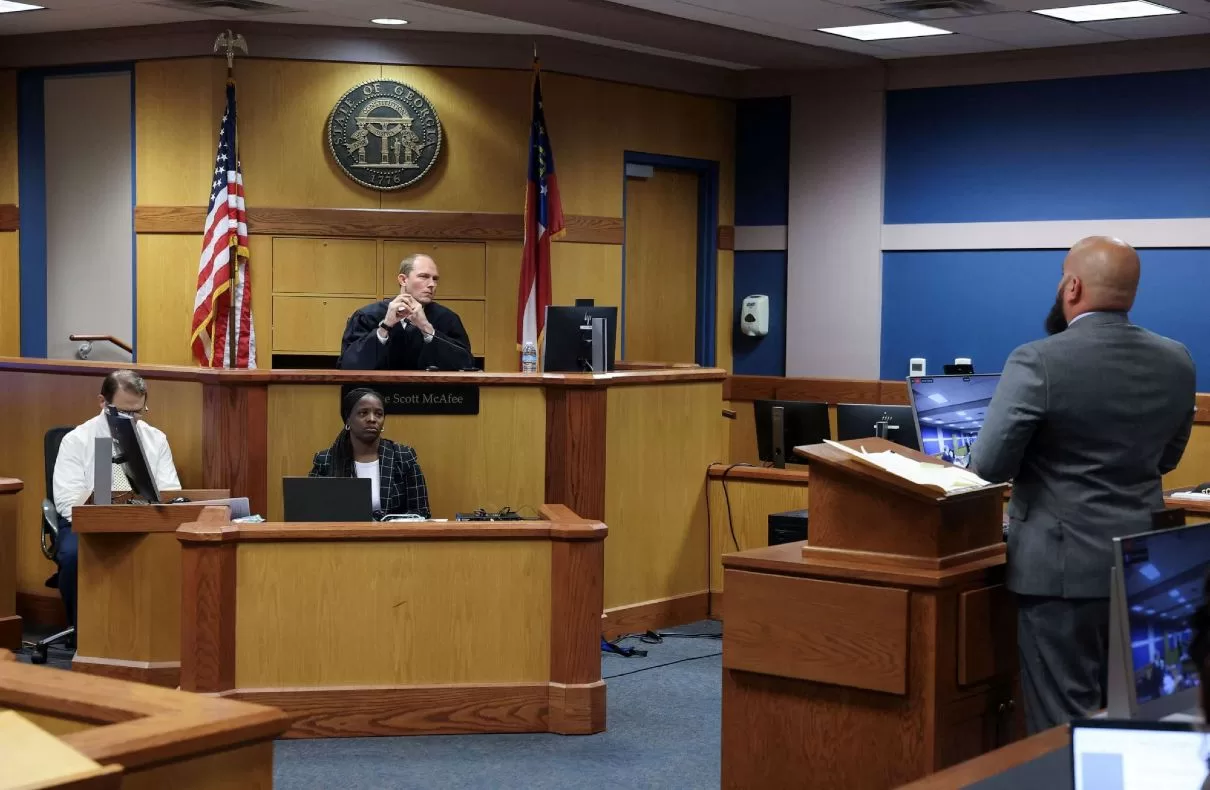A hearing in the Georgia election interference case took place on December 1, 2023 in Fulton County Superior Court. The hearing was the first time that former President Donald Trump’s legal team appeared in court since his indictment in August.
The 15 defendants in the case face conspiracy charges for attempting to overturn the 2020 election results and subvert the will of voters. Four of the defendants have pleaded guilty and agreed to cooperate with the government.
Attorneys for Trump and his co-defendants are seeking to delay or dismiss the case. Trump’s attorney, Steven Sadow, argued that the case should be dismissed on First Amendment grounds. The defendants filed motions to extend their pre-trial deadlines.
Their lawyers argued that Georgia has no power to prosecute them because the federal Constitution governs presidential electors and Congress resolves any disputes about them.
But Fulton County prosecutors contend states have long overseen how federal elections are handled at the local level and said that asking Congress to ignore certified presidential electors would be “absurd.”
Fulton County Superior Judge Scott McAfee hasn’t ruled on the dispute. He gave prosecutors until Dec. 15 to file additional arguments and defense lawyers until Jan. 2 to reply.
District Attorney Fani Willis charged Trump and 18 others, including former New York mayor Rudy Giuliani, with a conspiracy to overturn the results of the 2020 election.
Four co-defendants have pleaded guilty, but Trump and the three charged as fake electors – state GOP Chairman David Shafer, state Sen. Shawn Still and Cathy Latham – have pleaded not guilty.
The fake electors have asked to move their case to federal court, but a federal judge declined. The request is on appeal at the 11th U.S. Circuit Court of Appeals.
The fake electors argued they met Dec. 14, 2020, at the same time as the legitimate presidential electors, to preserve Trump’s options in case he won pending legal challenges over voting disputes.
The three defendants filed paperwork with Congress declaring themselves presidential electors for Trump despite lacking the required certificate from the governor.
Despite intense pressure from the Trump White House, Gov. Brian Kemp certified the Democratic slate of electors for Congress to count on Jan. 6, 2021, certifying Biden as president.
Shafer’s lawyers, Craig Gillen and Holly Anne Pierson, argued Friday that federal law required all disputes about electors to be resolved by Dec. 8, 2020, or Congress could decide which electors to recognize. A lawsuit challenging the results was still pending at that point.
Gillen argued the case should be dismissed because the alternate electors hadn’t broken the law as it stood at the time. “It should stop now,” Gillen said. “They should not be forced to go through a four-month trial and then tell the court what they have done is lawful.”
Pierson said federal law prevailed, so the state had no role in determining electors while disputes over the vote lingered. “The state cannot criminalize what federal law allows,” she said. But Deputy District Attorney Will Wooten said such logic was ridiculous.
If pending lawsuits could derail the certification of state electors, Congress could determine who won the presidency while ignoring voters, he told the court. “That’s absurd. It doesn’t make any sense,” Wooten said. “The defendants were never duly elected and qualified.”




